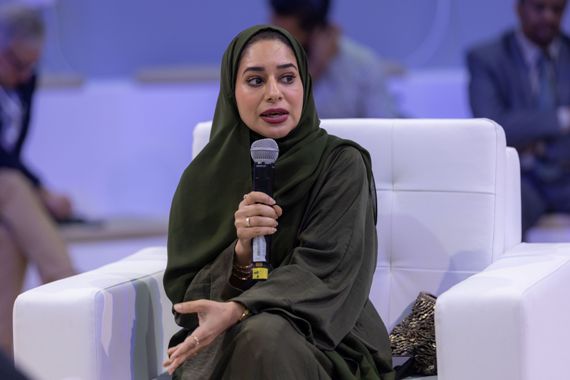English actor and writer Humza Arshad joined multiple award-winning Emirati artist Sumayyah
Al Suwaidi and Kuwaiti publisher Mohammed Shaker Jaraq at the Sharjah Children’s Reading
Festival (SCRF) on Wednesday in trying to find the best ways to explore passion in young
people using creative industries.
Moderated by keynote speaker and presenter Sally Mousa, the session discussed how the
creative industry has the potential to play a significant role in the upbringing of children. “It can
expose them to a range of imaginative and educational experiences that stimulate minds and
encourage overall creativity,” said Jaraq, the vice president of leading Kuwait-based Arabic
publishers KshMsh. “Our ability to think, imagine and create is what makes the human mind so
powerful”.
When asked how the creative industry impacts a child’s overall development and whether it can
foster creativity in them and capture their interest, Al Suwaidi, who’s exhibited in art exhibitions
and fashion shows around the world, said: “The Arab world should include creative arts and
expression in school. It is the schools where the children spend most of their time of the day and
they must spend long hours being creative. [Creative arts] cannot be a side curriculum anymore.
It has become more essential than ever before [to include creative arts in mainstream]. It is a
way forward”.
She further highlighted how arts can help tackle issues like bullying among the young people. “If
I weren’t in arts, I would end up punching sandbags to vent out. I am glad that my art today has
touched people’s heart everywhere,” said the Emirati whose work was auctioned by Christie’s in
2012 as part of the Modern and Contemporary Arab, Iranian and Turkish Art Part II sale and
exhibited at Sotheby’s Galleries in London as part of the Three Generations exhibition in 2013.
Talking about representation in the world of arts, Arshad, who produces the web series Diary of
a Bad Man (2010–13) and Badman (2015–present), said: “It’s all about inclusion. The world
needs to see different cultures, different people, different ways of doing things and although we
have taken small steps, we have a long way to go.”
“We just need to encourage expressions from different writers from different backgrounds. We
need them to share their stories,” said the English comedian of Pakistani descent whose
homemade YouTube videos have been viewed more than 100 million times, making him one of
the most popular online comedians in the UK.
